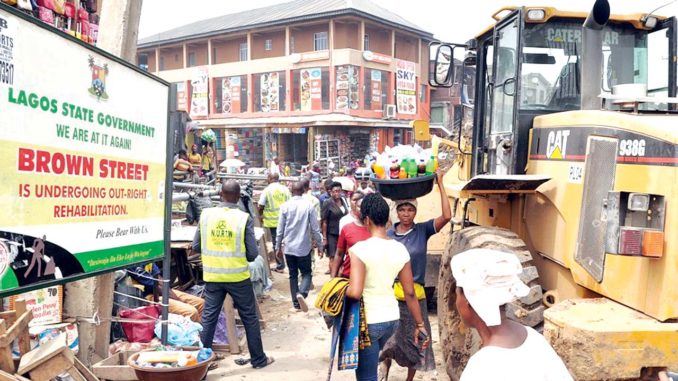
Not surprisingly, the Federal Government, the other day, vehemently disputed the latest report on Nigeria’s extreme poverty status released by the Brookings Institute. That is the usual attitude of government whenever a damning report is issued on any aspect of Nigeria’s socio-economic condition.
But that extreme poverty pervades the land is not hidden and the manifestation is everywhere in the dejected living condition of majority of the citizens.
Therefore, denying such an obvious fact amounts to playing the Ostrich. Instead, the nation’s leadership should accept the reality of acute poverty and seek ways of tackling it.
The respected Brookings Institute in its recent World Poverty Clock has estimated that 87 million Nigerians are currently living in extreme poverty.
According to the organisation, Nigeria has overtaken India as the country with the largest number of people living in extreme poverty in the world.
But the Minister of Industry, Trade and Investment, Okechukwu Enelamah, in a sharp reaction, faulted the report as untrue.
While addressing State House Correspondents after a Federal Executive Meeting in Abuja, Enelamah said data used by the rating institute was based on what he called “lagging economic indices” when Nigeria was under recession.
Enelamah, who acknowledged that there is absolutely no doubt that there is an urgency to create employment in Nigeria, said government was making huge investment in infrastructure, which in the long run, would address the problem of poverty in the country.
Once again, it is needless for anyone to refute the poverty level that is self-evident across Nigeria. Besides, the Brookings Institute is a reputable public policy organisation devoted to in-depth research that leads to new ideas for solving problems facing societies globally. It is an organisation that gains nothing by deliberately painting Nigeria or any country for that matter in bad light.
Talking about using “lagging economic indices when Nigeria was under recession,” the question is whether Nigeria has actually exited the recession given the fact that the living condition of so many people is worsening. Many citizens can hardly afford one meal per day and there are families that are totally famished and unable to help themselves.
For instance, how else can a recent occurrence in Nasarawa State where a widow threw two of her kids into a well to reduce the burden of fending for four children be described? What could have pushed the woman into killing her own child other than unbearable poverty? That is just one example. There are countless unreported cases like that all over the country.
Most people would not understand the minister’s assertion that Nigeria is no longer in a recession. How many people have gained employment since the recession supposedly ended? How many Nigerians have had improved quality of life?
Virtually, nothing has changed in peoples’ circumstances.
Even without figures, anyone can perceive that poverty pervades Nigeria. Indeed, available records put the national incidence of poverty at 75.5 per cent, with 70.7 per cent for urban areas and 79.2 per cent for rural areas.
Granted that the national incidence of relative poverty declined in some cases during the 90s after a sharp increase in the early 80s, the situation has generally been on the rise since the turn of the millennium. The Millennium Development Goals (MDGs) designed to reduce poverty was not met by Nigeria. And it is lagging behind in the successor Sustainable Development Goals
Democracy, contrary to all expectations, has not helped matters. Most policies of government are anti-people and when not, counter-productive. Social investment as being pushed by the government is mere tokenism. The poverty alleviation programmes, over the years, have not changed lives. The alternative route, which is wealth creation, should be pursued with vigor.
The Muhammadu Buhari administration’s plan to give cash handouts to the poor is ill-advised and won’t reduce poverty. It will rather promote corruption as the real poor people will not get the payments.
It is better to engage people in public work projects through which they are paid than give them free handouts. Government should therefore push for people oriented programmes that would lift many out of poverty.
Brazil, Columbia and Malawi are three of the countries that have demonstrated amazing commitment to reducing poverty and that template could be followed. For instance, between 2003 and 2009, 21 million people in Brazil were reportedly lifted out of poverty.
According to Brazil’s National Institute of Applied Economics Research (IPEA), the poverty incidence rate declined from 35.8 to 21.4 per cent. Nigeria should learn from these countries.
Certainly, the poverty trap remains a very serious challenge for Nigeria and government should give it the priority attention it deserves.
END

Be the first to comment